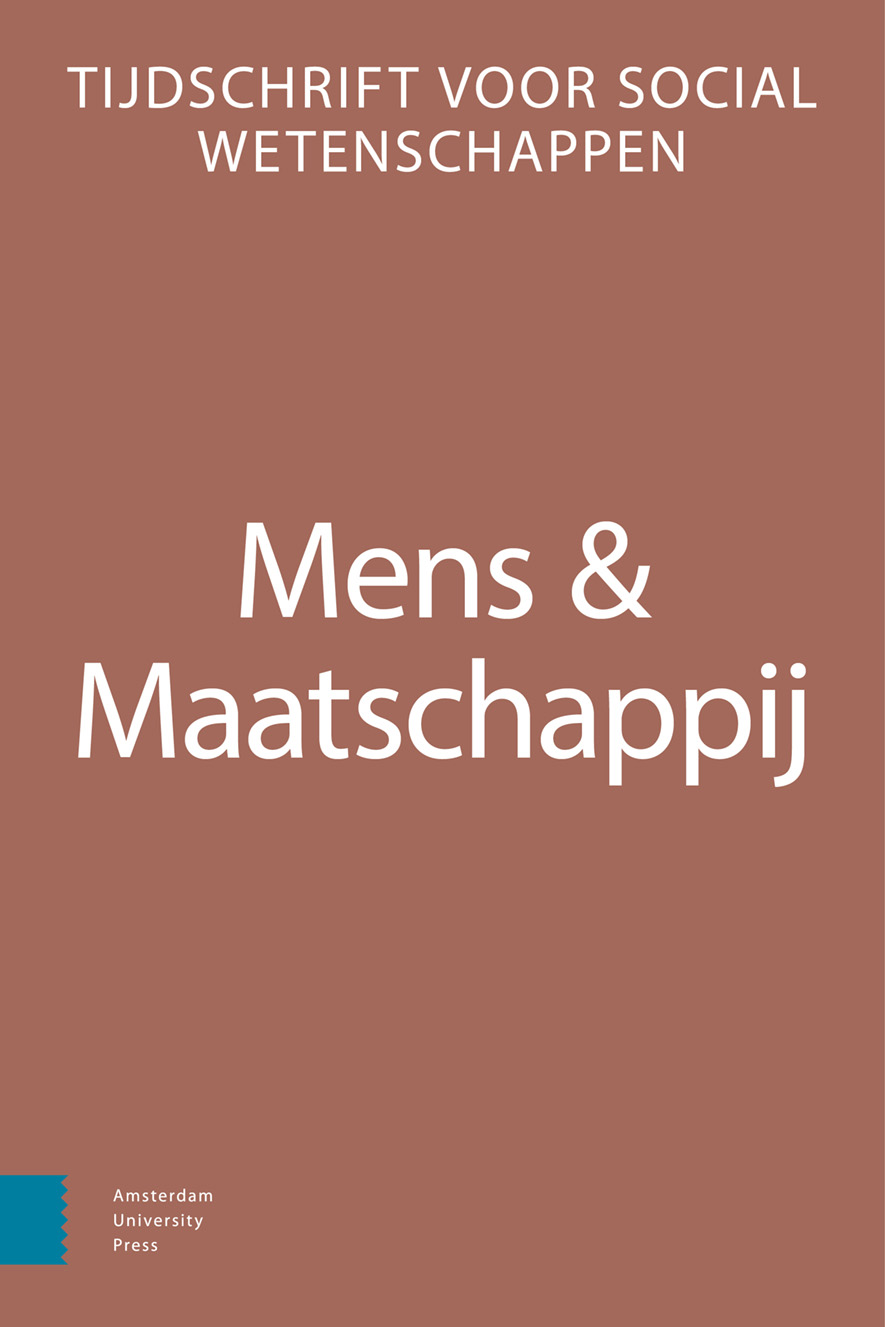- Home
- A-Z Publications
- Mens & Maatschappij
- Previous Issues
- Volume 96, Issue 1, 2021
Mens & Maatschappij - Volume 96, Issue 1, 2021
Volume 96, Issue 1, 2021
-
-
Gelijke kansen voor leerlingen met lager opgeleide ouders bij de overgang naar het voortgezet onderwijs?
More LessAuthors: Lisa A. Janssen, Gijs Huitsing, Ben ter Beek & Anneke C. TimmermansAbstractDo students with low-educated parents have similar educational opportunities as students without low-educated parents during the transition to secondary education? Study 1 matched 62 students with low-educated parents to students with the same math score in grade 7. Despite this matching procedure, similar teachers’ advice for secondary education, and scores on the Central Examination, students with low-educated parents started at lower educational levels in secondary education. Study 2 conducted semi-structured interviews with 18 decisionmakers to explain these differences. Teachers and other decisionmakers account for (lack of) support from parents and possible deviant behavior of students for placement in secondary school.
-
-
-
Een multilevel onderzoek naar het effect van tablet gebruik in Nederlandse basisscholen op leesprestaties
More LessAuthors: Feline Wafelaar & Kim StienstraAbstractA multilevel study into the effect of tablet use in Dutch primary schools on reading achievements
This study utilized data from the 2016 Progress in International Reading Literacy Study to examine the effect of the frequency of tablet usage in school on children’s reading achievements. It further addressed the gender gap in achievements by exploring whether gender moderates the relationship between tablet use and achievements. The sample consisted of 3504 fourth grade students from Dutch primary schools. A multilevel model was conducted in which both student- and school-level predictors were included. Contrary to the positive effect of tablet use on reading achievements found by most previous studies, the findings suggested no relationship between tablet use and achievements. There was also no evidence found that gender moderates this relationship. Results are critically discussed and recommendations for future research are being made.
-
-
-
De werk-privé balans van gescheiden ouders
More LessAuthors: Arda van den Berg & Anne-Rigt PoortmanAbstractThe work-family balance of divorced parents: The role of work demands, family demands and their interplay
After a divorce, parents may face difficulties in combining work with the care for children. Few studies have examined the work-life balance of this particular group. Using data from 1.577 employed divorced fathers and 2.059 employed divorced mothers, we examined how work demands (long work hours, commuting times) and family demands (number and age of children, postdivorce residence arrangements) affected the work-family balance of divorced parents. High work demands lowered the work-life balance among both fathers and mothers. Greater family demands had a smaller impact than work demands and led to a worse work-life balance only for mothers. Family demands, however, became more important for fathers’ work-family balance when combined with high work demands. Such an interplay of work and family demands was also found for mothers: work demands had stronger effects in case of high family demands and vice versa.
-
-
-
Factoren die een rol spelen bij het denken over rechtvaardige verdeling van vermogen en inkomen
More LessAuthors: Evert-Jan Rotshuizen, Helen Pluut & Willem van BoomAbstractFactors That Influence How People Think About the Fairness of Distribution of Wealth and Income: A Survey Study Among Dutch Citizens
Ever since ancient Greece, people have philosophized and discussed about the fair distribution of resources. A body of empirical research on this topic has emerged in the second half of the 20st century. Oftentimes, respondents are presented with a distribution and asked whether they consider it just. In this paper, respondents are asked to allocate a sum of money across three families that represent distinct allocation principles – we study the principles of equality, need, subjective performance, and objective performance. We find that individuals heavily weigh the need principle in their allocation decisions. However, our research also shows that allocation behavior is on the one hand dependent on the situation and on the other hand associated with individual factors. Political preference and gender do not influence the allocation behaviors of individuals, but religion and age have the hypothesized effects.
-
Volumes & issues
Most Read This Month


